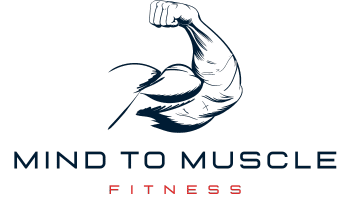
Gaining Too Much Fat While Bulking? Read This
Bulking up can feel like a double-edged sword. In your quest for muscle, there’s a fine line between packing on size and tipping the scales towards excess body fat. This balance game is crucial. Too much fat gain can obscure those hard-earned gains, leaving you with an unwanted layer rather than the chiseled physique you’re working toward.
Understanding the nuances of bulking without the bulk can make all the difference. It’s not just about lifting heavier or eating more; it’s about smart strategy. Here we’ll unravel methods to safeguard against excessive fat during your growth phase, ensuring that the mass you gain is powerful and lean, not flabby.
Get ready to transform your approach to bulking with actionable tips that cater to both rookie lifters and seasoned gym veterans. Embark on this journey full of insights for optimal muscle growth while keeping a sharp eye on body composition. Dive into these battle-tested tactics, because no one wants to spend their cut undoing the mistakes of their bulk. Let’s turn those calories into solid muscles, not spare tires!
Essential Facts on Gaining Fat While Bulking
- Bulking increases muscle mass and body fat.
- Excess calories can lead to unwanted fat gain.
- Macronutrient ratio affects fat accumulation.
- Monitoring weight gain is crucial for balance.
Advantages of Controlled Bulking
Balanced bulking supports muscle growth. It minimizes fat gain. Thoughtful surplus ensures quality gains.
Pros and Cons of Bulking
| Pros | Cons |
|---|---|
| Increase in muscle mass | Potential excess fat |
| Improved strength | Calorie counting needed |
| Better energy for workouts | Risk of imbalanced diet |
Maintain a lean bulk with care. This approach fuels the muscles. It limits unwanted adipose tissue expansion.
Strategic Bulking: Balancing Muscle Gain and Fat Control
Bulking up inherently involves increasing calorie intake to support muscle growth. However, the risk of fat accumulation can overshadow muscle development if not managed properly. Here’s a detailed plan to help natural bodybuilders gain muscle without excess fat.
Step 1: Calculating Caloric Surplus
Start by determining your maintenance calories – the amount you need to maintain your current weight. Use online calculators or consult a nutritionist for accuracy. A moderate surplus of about 10-15% over maintenance can prompt muscle growth while limiting fat gain. For example, if your maintenance is 2,500 calories per day, increase to approximately 2,750-2,875 calories.
Step 2: Macronutrient Distribution
Split your calories into macronutrients crucial for muscle building and energy balance. Aim for a protein intake of 1g per pound of body weight, around 25-30% from fats, and the remaining from carbohydrates. Complex carbs and lean proteins should be staple foods in your diet.

Step 3: Meal Frequency
Plan 5-6 smaller meals throughout the day to constantly fuel muscle growth and metabolism. Eating smaller, frequent meals helps to regulate blood sugar levels and manage hunger, reducing the likelihood of overeating.
Step 4: Resistance Training
Prioritize compound movements that work multiple muscle groups like squats, deadlifts, and presses. Aim for 4-6 weight training sessions per week, focusing on progressive overload to stimulate muscle hypertrophy but avoid excessive volume that may necessitate a caloric surplus too high which can induce unnecessary fat storage.
Example Workout Plan:
– Monday: Chest and Triceps
– Wednesday: Back and Biceps
– Friday: Shoulders and Legs
Each workout starts with compound movements followed by isolation exercises; for example:
- Squats: 4 sets x 6-8 reps
- Leg Press: 3 sets x 10 reps
- Lunges: 3 sets x 12 reps per leg
Step 5: Cardiovascular Exercise
Incorporate low-intensity steady-state (LISS) cardio or high-intensity interval training (HIIT) 2-3 times a week to help maintain cardiovascular health and aid in fat control without impairing muscle growth.
Step 6: Rest and Recovery
Allow muscles time to repair by having at least one full rest day weekly. Support recovery with sufficient sleep and hydration.
Keynotes:
- Maintain a moderate caloric surplus to prevent excessive fat gain during a bulk.
- Balance macronutrients to favor muscle synthesis over fat storage.
- Spread food intake across several smaller meals throughout the day.
- Progressive overload in lifting is essential, but be cautious of excessive workout volume.
- Cardio is beneficial for health and controlling body fat percentage.
Common Mistakes in Bulking
One main error during bulking is neglecting nutritional quality and opting for excessive caloric intake. This often comes from high-fat and simple carbohydrate sources that promote fat gain rather than muscle mass. This approach can lead to poor health outcomes and make it harder to achieve a lean physique after the bulking phase. Incorporating cardio while bulking strategies can help mitigate excessive fat gain by improving cardiovascular health and maintaining a better energy balance. Additionally, focusing on nutrient-dense foods ensures the body receives the necessary vitamins and minerals to support muscle growth and overall well-being.
Moderation in surplus intake and clean eating are effective strategies against this pitfall.
Additionally, some may disregard cardio for fear of losing muscle mass. Integrating appropriate amounts and types of cardio will maintain heart health and assist in managing fat levels without sacrificing muscle.
How Can You Avoid Gaining Too Much Fat While Bulking?
- Keep a precise count of your calorie and nutrient intake to avoid unnecessary excess.
- Prioritize whole-food sources rich in nutrients ensuring each meal is balanced.
- Incorporate resistance training focused on progressive overload for optimal muscle growth.
- Include regular cardio sessions to keep fat accumulation at bay.
- Manage rest and recovery as carefully as workout intensity for holistic health management.

Advancements in Controlling Fat Levels During Bulk Phases
In recent years, precise dietary tracking has become a cornerstone for those who aim to maximize muscle gains while minimizing fat accumulation. Sophisticated tools and apps allow for the diligent monitoring of macronutrients. This asserted control over calorie surplus thresholds ensures lean growth. Integrating new research on metabolic adaptation has refined bulking protocols, offering an evidence-based approach to optimizing lean tissue expansion.
Customizing Bulking Strategies
Customizing the bulking phase is critical for different body types and goals. Endomorphs, for instance, would opt for a minimal calorie surplus to reduce fat gain, whereas ectomorphs might need a more aggressive approach. Periodizing calorie intake—cycling through days of higher and lower consumption—can tailor the process. Athletes can thus align bulking periods with their body’s needs and training intensity.
Integrating Lean Gaining Protocol
Combining lean bulking strategies with other methods like intermittent fasting or carb cycling can potentiate results. Intermittent fasting might improve insulin sensitivity, potentially making the body more efficient in nutrient partitioning. Carb cycling aligns carbohydrate intake with training days, maximizing glycogen stores for workouts while keeping fat gain at bay on rest days.
Nutritional Strategies for Optimized Gains
Experts underscore the importance of protein as the foundational macronutrient in any bulking diet. Aim for 1.6 to 2.2 grams per kilogram of body weight daily. Balance intake between fats and carbohydrates based on how your body responds. Implementing a diet rich in whole foods promotes better health and sustainable gains. Equally, the timing of nutrient-dense meals around workouts supports recovery and muscle hypertrophy.
Recovery and Its Role in Lean Bulking
Sleep quality cannot be overstated in the process of lean mass accumulation. Aim for 7-9 hours of uninterrupted sleep for optimal hormone regulation—including growth hormone and testosterone, which are pivotal in muscle-building. Including active recovery and mobility work can further reduce inflammation and promote muscle repair.
Lean Bulking and Cardiovascular Work
Including cardio in a lean bulk can help regulate fat gain. Strategically timed, low-intensity steady-state (LISS) cardio or high-intensity interval training (HIIT) can improve heart health and assist in creating a slight calorie deficit, potentially minimizing fat storage.
Supplementation for Efficient Bulking
While whole foods should comprise the majority of a diet, supplementation can play a role. Creatine and branched-chain amino acids (BCAAs) support muscle retention and growth. Omega-3 fatty acids can enhance recovery and might have a role in optimizing body composition.
All strategies should align with the goal of building lean muscle without excessive increases in fat tissue. Keeping data on body composition can help adjust the plan as needed. The adoption of these practices represents the synthesis of current knowledge in the pursuit of a well-sculpted physique through natural means.
FAQs on Gaining Too Much Fat While Bulking
How can I tell if I’m gaining too much fat while bulking?
Monitor your body composition and look for signs like noticeable increases in waist circumference or a quickly escalating body fat percentage. If your strength gains aren’t proportionate to weight gain, you might be adding more fat than desired.
What’s the ideal rate of weight gain during a bulk?
Aim for approximately 0.5 to 1 pound per week. This moderate approach favors muscle growth with minimal fat accumulation, ensuring your bulk remains effective and manageable.
Is it normal to gain some fat during bulking?
Yes, a slight fat gain is expected due to excess calories, but it should be within reason and not overshadow muscle development.
How can I adjust my diet if I’m gaining too much fat?
Decrease your daily caloric intake slightly, cut back on refined sugars and processed foods, and increase lean protein and fiber-rich vegetables to improve satiety and metabolic health.
Can cardio prevent excessive fat gain in a bulk?
Incorporating regular cardio can help manage fat levels by increasing calorie expenditure while also supporting cardiovascular health.
What macronutrient ratio is best to minimize fat gains during a bulk?
A balanced approach often leans toward high protein, moderate carbohydrates, and adequate fats to support muscle gains without excessive caloric surplus that may lead to fat storage.
Should I do mini-cuts during my bulk?
Mini-cuts can help control body fat accumulation throughout bulking by briefly reducing caloric intake, allowing for a period of fat loss without hindering overall bulking progress.
How does sleep affect fat gain when bulking?
Poor sleep can disrupt hormone balance, leading to increased appetite and potential overconsumption of calories, which contributes to unwanted fat gain.
Can eating clean guarantee I won’t gain too much fat while bulking?
Even with clean eating, consuming more calories than you burn will result in fat gain. Focus on portion control and nutrient-dense foods for optimal results.
How often should I track my progress to avoid gaining too much fat?
Frequent tracking – such as weekly check-ins for body weight, monthly for body measurements, and body composition assessments every few months – can help you adjust your bulking strategy as needed.
Final Thoughts
Balancing bulking phases with careful monitoring prevents undue increases in adiposity. Strategically managed caloric surpluses support muscle growth while keeping excessive fat accumulation at bay.
The goal is sustainable physique enhancement; thus, an optimized approach demands diligence in nutrition, training intensity, and lifestyle choices for long-term success in natural bodybuilding.



